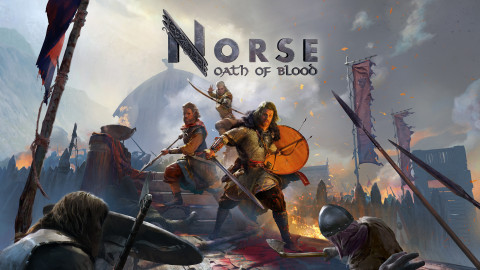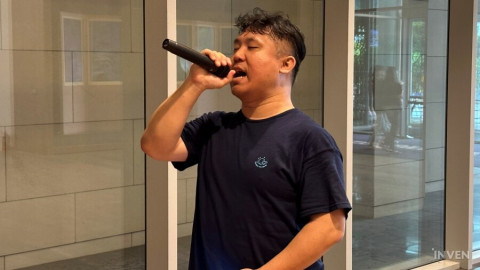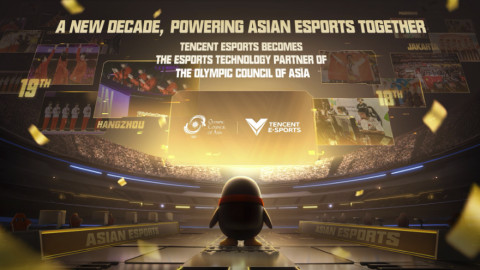
Since June, the Super Smash Bros and wider Fighting Game Community have been processing an avalanche of accounts from dozens of apparent victims of sexual harassment, grooming, statutory rape, and other dangerous and toxic behaviors. Dozens of top players and figures, including Nairoby “Nairo” Quezada, Gonzalo “ZeRo” Barrios, D'Ron “D1” Maingrette, and Cinnamon “Cinnpie” Dunson have been implicated in these accounts. Questions are being asked regarding what systemic issues have plagued the Smash scene to create such pervasive and widespread acceptance of these behaviors over the years.
As the public processes these stories and allegations continue to surface, many community members — players, parents, fans, and organizers — are reflecting on how they could better hold themselves and each other accountable, and work to end a culture where victims of abuse are unable or afraid to speak out.
This moment is not just about providing justice to victims and abusers. It’s also about ensuring that the scene is made safe for everyone involved in it moving forward, especially women, LGBTQ+ community members, and minors, groups who have been disproportionately victimized and/or excluded.
For all these individuals who could have done more to protect each other, there is only one entity that had the power to dramatically increase the level of safety and proactive abuse prevention in every single corner of the Smash scene: Nintendo.
To be clear, abusers are solely responsible for their actions, but the community could have prevented a great number of horrible actions if they had resources, training, and frameworks to prevent abuse and deal with accusations.
To be sure, sexual harassment and abuse are systemic and widespread in the gaming industry. The wave of allegations and statements which have rocked the Smash community in recent weeks are clearly linked to the spike of victims coming forward in the wider gaming and streaming space.
However, no single game or scene has seen anything approaching the number of allegations brought to light in the Smash community over the last month. Many ideas have been put forth as to why the competitive Smash scene is uniquely vulnerable to these dynamics of abuse and grooming.
As Genesis owner Sheridan “Dr. Z” Zalewski argued to The Verge last year, Smash is uniquely vulnerable to abuse because of the younger demographics of its player base. It’s certainly clear that the mixed-age tournament environments have proven to be ripe for exploitation by abusive and predatory actors.

Apart from the young playerbase, a key element that sets Smash apart from its contemporaries among the FGC and esports scenes is Nintendo’s refusal to sponsor or fund competitive play. Smash’s creator and director Masahiro Sakurai argued in 2018 that competitive SSB doesn’t align with Nintendo’s philosophy of what games should be. Nintendo President Shuntaro Furukawa effectively dodged responding to 2020 criticisms of Nintendo’s refusal to contribute to SSB prize pools.
For Nintendo, this attitude is consistent with almost 20 years of refusal to fund or sponsor all but a select few independently-organized SSB tournaments across five titles or host any but the most superficial publicity tournaments. This lack of support should be understood not just as an absence of marketing and sanctioning from the Nintendo brand, but also a deficit of monetary support and organizational resources which is all but unique to Smash among other esports and competitive gaming communities.
These deficits directly contribute to the pervasive lack of safety or anti-abuse protections at community tournaments, with TOs operating on shoestring budgets and dependent on volunteer staffing. Prize pools are laughable even compared to fighting games with smaller followings and fewer tournaments, and with no contributions from Nintendo, organizers can only offer what’s left after venue, equipment, and administrative costs. This means that paid staff, abuse prevention training, and formal reporting systems are unheard of in the Smash tournament scene, from weeklies to EVO.
Sponsorship is also critical to abuse prevention because it forces events to meet basic standards or risk losing their license. Many companies understand that independent and healthy grassroots scenes still require nurturing.
For example, Capcom provides standards for tournament organizers participating in their Pro Tour circuit, crucially mandating that players “under the age of majority [...] must be accompanied by a parent or legal guardian at each Tournament in which he/she participates.”

Outside the FGC, Riot Games’ tactical shooter VALORANT established community tournament guidelines before the game had even launched. While no specific rules around conduct or the participation of minors are laid out, they at least indicate that license to operate competitions is contingent on representing the company’s stated values.
Nintendo provides nothing in the way of guidelines or requirements for community events. Far from it, they have acted inconsistently and erratically, occasionally issuing cease and desists to prevent tournaments from being streamed, only to back down after backlash, but never explaining themselves to players and fans. When Nintendo finally sponsored a full SSBU European Circuit in 2019, they did not publish any centralized guidelines or policies, and rather let each organizer establish their own protocols.
Even when Nintendo has been willing to sponsor Smash events, they haven’t taken steps to vet organizers. Apex 2015 got the rare nod from Nintendo, only for organizer Alex Strife to step down 11 days later after allegations of harassment and blackmail emerged. And just this week, EVO Online 2020 was canceled after organizer Joey Cuellar was accused of assault.
Even if the extent of it wasn’t completely understood, pervasive abuse by players, coaches, and organizers in the scene has been documented for years. Ultimately, we have to hold Nintendo accountable for their inaction, and the irreparable harm they failed to prevent.
The reality is that Nintendo profits off the thriving Smash scene even without direct investments. These revenue streams come from console and game sales, GameCube controllers, Switch Online subscriptions, and brand recognition just to name a few. Years of distancing themselves from the competitive scene won’t meaningfully prevent the damage to their brand as a result of association with pedophilia and other sexual crimes. In other words, their responsibility for these situations extends beyond abstract ethical imperatives to concrete profits.
Fighting a culture of abuse takes deliberate effort and preventative actions. Organizers and staff must be trained to identify and intervene in situations that could be unsafe, particularly around minors interacting with adults with no guardian present. Puppeh’s statement on Cinnpie’s abuse and grooming is horrifying, but it’s even more appalling when you consider that they could be clearly seen engaging in physical contact on stream, but nobody ever intervened.
Structured reporting and investigations procedures are also necessary. Victims need to know that they can confidentially report abuse to a neutral party that has the authority and resources to conduct an investigation and take appropriate actions. Abusers cannot be allowed to think they are free to endanger and harm others without penalty or repercussions. Such a system needs high standards of transparency and clear penalties from centralized leadership with the authority to make such decisions and respect from the local scenes.
Having an investigative body and transparent, consistent procedures also helps to shape the public discussion around abuse allegations. While social media has been invaluable in providing victims with a platform to ensure their experience is heard, it also creates a space in which abusers are judged by the court of public opinion first and foremost.
The public understanding of the situation is then influenced by speculation, whataboutism, victim-blaming, derailment, and devil’s advocacy. All of these effects can be manipulated by abusers to avoid consequences for their actions. There is no situation where it is fair to victims or the accused for their outcomes to be determined by the opinions and biases of fans and random onlookers.
Some groups have already tried to establish this form of centralized authority in the Smash community. In particular, the SSB Conduct Panel, created in 2018 by community members, established an opt-in conduct policy and ban list shared with all signatories. They created tiers of offenses and punishments, reporting procedures, and a panel of investigators.
However, the SSBCP faced considerable pushback from people in the community who saw the banlist as authoritarian or abusable, as well as banned players threatening legal action. Despite its significant efforts and widespread buy-in from local Tournament Organizers, SSBCP’s Code of Conduct was not adopted by most Majors, and needless to say, could not fix the underlying issues plaguing the community on their own.

At the end of the day, the only entity that can meaningfully enforce standards of conduct across almost every tournament is Nintendo. As discussed earlier, this is because they are able to withhold a license to operate tournaments if TOs are found to be permitting banned players or misconduct at their events.
This is the standard operating procedure in other games. As already mentioned, Capcom bans players and TOs fall in line of their own accord. Developers are the only entities in competitive ecosystems with the money, legal authority, and reputation necessary to make and enforce these decisions, especially when lacking an independent governing body like in traditional sports.
SSBCP was necessary only because of Nintendo’s unwillingness to step into the role developers take without question in other scenes. With more structured oversight from Nintendo, and financial support on prize pots, organizers would be able to reallocate energy and money to ensuring the safety of participants.
There is much more that can and should be done. Reddit user zipzzo made a very thorough list of reforms which could be enacted to strengthen the Smash community’s ability to prevent abuse. Rivals of Aether has also made changes to its community safety rulest, which are commendable, and a step in the right direction.

Ultimately, we should all take away from this moment a renewed sense of purpose and obligation to our communities. But we can’t let the most powerful and absentee player in all this suffering go unaccountable. Nintendo may not want to spearhead the competitive scene around their games, but they share responsibility for the tremendous pain that was inflicted on vulnerable and innocent victims as they turned the other way. In the words of Albert Einstein:
“The world is a dangerous place, not because of those who do evil, but because of those who look on and do nothing."
-

Gwen is a data geek and loves derailing conversations with astronomy facts and cat pictures.
Sort by:
Comments :13
 Best Comment
Best Comment
-
3

level 1 Meatapple2
Nintendo didn't make or organize the competitive community developers should listen and have some communication with the competitive scene not to control it but to develop the game it's the people of the community who should have done better not Nintendo they make the game and that is their only job
-
3
level 1 doggie218_crazy
The game was intended to be played mostly by children. Does Nintendo set up these tournaments? Definitely Not. They've got better shit to do. They did the most that they could do by issuing out a statement. You are blaming the company instead of the people who are actually guilty. I know Nintendo isn't perfect, but no company deserves this.
-
3
level 1 ohmygod__jod1
It isn't Nintendo's job to coddle rapists. Just like it shouldn't be your job to make the smallest leaps in logic defending sexual predators.
Call it what you want, this "article" is stupid. One hell of an opinion alright.
-
3
level 1 DimitriBlaiddyd
imagine being so pathetic you think nintendo's at fault for what fans of their games do
-
3

level 1 streetdzine
Wow, I tried to give the benefit of doubt that this article headline was just clickbait but nope actually blamed Nintendo. "The other FGC and eSports..." Let me stop you right there. Smash Bros was never intended to be what the community made it be. It's a damn party game. The competitive scene is not for you to use to try to control the massive as though more people play this game competitively or was made for that purpose. This isn't an opinion. This is straight slander to Nintendo and excuse for the community. They don't need that right now.
-
3
level 1 ohmygod__jod1
It isn't Nintendo's job to coddle rapists. Just like it shouldn't be your job to make the smallest leaps in logic defending sexual predators.
Call it what you want, this "article" is stupid. One hell of an opinion alright.
-
3
level 1 doggie218_crazy
The game was intended to be played mostly by children. Does Nintendo set up these tournaments? Definitely Not. They've got better shit to do. They did the most that they could do by issuing out a statement. You are blaming the company instead of the people who are actually guilty. I know Nintendo isn't perfect, but no company deserves this.
-
0

level 1 Cromwell
4
Your ranted news artical sickens me i was verbaly and mentally abused by my roomate who at one point called the cops on me and the cops that shows up to no extent took notice of my physical look they saalw a mexican who is fat and threaten me with jail time for a item i was acussed of stealing i was threaten with going to jail and went out to thank my roomate
-
0

level 1 Cromwell
@CromwellThe sadden thing i was sexually abused by people i was verbally abused by those i trust would you tell anyone i didnt till i got away and moved and i tell anyone that listens their are horrible people on thi ls earth
-
0

level 1 Cromwell
@CromwellAnd currently this has proven my point even more the only thing nintendo is wrong of is a game but evo has other games all tourney have other games not just one
-
1

level 1 Cromwell
@CromwellAnd even more females can be pedophiles and rapists just like men and men can be rapists and pedophiles and females can destroy men just as easly and effortlessly men by all known law forces are deemed guilty even if a female is at fault and female can call rape on tuesday for someone they had sex with 5 months back causee they feel like it
-
0

level 1 Cromwell
@CromwellIm a male and my own gender makes me feel bad but like any i aint going tocbe female couse they can be ruthless and cold
-
-
2
level 1 donnie
How much of an absolute dumbass do you have to be to think all this pedophilic shit that's going on is Nintendo's fault? Nintendo doesn't need to do shit for the toxic cesspool that is the smash community. If anything, Nintendo did the right thing by never getting too involved.
-
3

level 1 Meatapple2
Nintendo didn't make or organize the competitive community developers should listen and have some communication with the competitive scene not to control it but to develop the game it's the people of the community who should have done better not Nintendo they make the game and that is their only job
-
1

level 1 JabberWocky1984
What happened to those young players should never have happened, and those individuals responsible should be punished to the full extent of the law. They are evil, what they have done is extremely wicked. That being said...
" Questions are being asked regarding what SYSTEMIC issues have plagued the Smash scene to create such pervasive and widespread acceptance of these behaviors over the years." (Caps added by me).
This is what happens when Critical Theory bleeds into other industries other than politics. The individuals are never to blame, it is always the systems fault (unless you disagree with Critical Theorists, then you are also part of the problem). Basically Critical Theory sees the world as a group of systems and hierarchical structures. You are either the oppressed or the oppressor. In this case, horrible things happened because of a game that Nintendo put out. The victims are the oppressed, and Nintendo is the highest "system" involved so therefore it must be to blame for the wrongdoing.
If anyone wants to understand the root of my argument, go look up the terms "Critical Theory," and "cultural Marxism."
-
0
level 1 Alexander_Ho
Are you implying that Nintendo knew that this was a problem the whole time? Where's the proof?
How could they have known? You said they didn't take part in the community at all.





